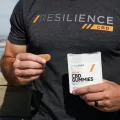The CBD Industry is Booming
The CBD industry has been growing at an unprecedented rate over the past few years, and it shows no signs of slowing down.
With the legalization of hemp-derived CBD in the United States, more and more people are turning to CBD products for their health and wellness needs.
This has created a huge opportunity for entrepreneurs who are looking to launch a CBD store.
However, starting a CBD store can be a daunting task. There are many factors to consider, including costs, legal regulations, and marketing strategies.
In this article, we will explore the costs and considerations involved in launching a CBD store, and help you decide whether it is the right move for you.
Jump to Section
Why Launch a CBD Store?
There are many reasons why you might consider launching a CBD store.
For one, the demand for CBD products is rapidly growing, and there is a lot of potential for profit.
According to a report by BDS Analytics, the CBD market is expected to reach $20 billion by 2024.
Additionally, CBD products have been shown to have a wide range of health benefits, from reducing anxiety to relieving pain. This means that you can feel good about the products you are selling, knowing that they are helping people improve their lives.
Finally, launching a CBD store allows you to be your own boss and create a business that aligns with your values and interests.
If you are passionate about health and wellness, starting a CBD store can be a great way to turn that passion into a career.
Costs and Expenses: What to Consider
Launching a CBD store involves a number of costs and expenses that you will need to consider. Here are some of the main expenses to keep in mind:
-
Product costs: You will need to purchase inventory to stock your store. This can include CBD oils, edibles, topicals, and more.
The cost of your inventory will depend on the products you choose to carry and the suppliers you work with.
-
Storefront costs: If you plan to open a physical storefront, you will need to factor in the cost of rent, utilities, and other expenses.
You may also need to purchase furniture, signage, and other items to set up your store.
-
Website costs: If you plan to sell your products online, you will need to invest in a website.
This can include the cost of web development, hosting, and e-commerce software.
-
Marketing costs: To attract customers to your store, you will need to invest in marketing and advertising.
This can include social media advertising, print ads, and other forms of promotion.
It’s important to keep in mind that the costs of launching a CBD store can vary widely depending on your location, the size of your store, and other factors.
It’s a good idea to create a detailed budget before you begin, so you can get a sense of how much you will need to invest.
Legal Considerations: Navigating the Regulations
Launching a CBD store also involves navigating a complex web of legal regulations. Here are some of the key legal considerations to keep in mind:
-
State laws: CBD is legal in most states, but there are some exceptions.
It’s important to research the laws in your state to make sure that you are operating legally.
-
FDA regulations: The FDA has not yet established clear guidelines for the use of CBD in foods and supplements.
This means that there is some uncertainty around the legality of certain CBD products.
-
Labeling requirements: The FDA requires that CBD products be labeled accurately and include certain information, such as the amount of CBD per serving.
It’s important to make sure that your products comply with these requirements.
-
Payment processing: Some payment processors may be hesitant to work with CBD businesses due to the legal uncertainty surrounding the industry.
It’s important to find a payment processor that is willing to work with your business.
Navigating the legal landscape of the CBD industry can be challenging, but it’s essential to ensure that your business is operating legally and ethically.
Marketing and Branding: Building Your Customer Base
Once you have launched your CBD store, you will need to focus on building your customer base. Here are some tips for marketing and branding your business:
-
Focus on education: Many people are still unfamiliar with CBD and its benefits.
By educating your customers about CBD and its uses, you can build trust and establish yourself as an expert in the industry.
-
Offer promotions: Offering promotions and discounts can be a great way to attract new customers and incentivize repeat business.
-
Build a strong brand: Your brand is what sets you apart from your competitors.
Focus on creating a strong brand identity that reflects your values and resonates with your target audience.
-
Leverage social media: Social media can be a powerful tool for reaching new customers and building your brand.
Make sure to create a presence on platforms like Instagram and Facebook, and engage with your followers regularly.
Building a strong customer base takes time and effort, but it’s essential for the long-term success of your business.
Is Launching a CBD Store Right for You?
Launching a CBD store can be a rewarding and profitable venture, but it’s important to carefully consider the costs and legal considerations before getting started.
By creating a detailed budget, navigating the legal landscape, and focusing on marketing and branding, you can set your business up for success.
If you are passionate about health and wellness, and are looking for a business opportunity that allows you to make a positive impact on people’s lives, launching a CBD store may be the right move for you.
FAQ
What are some popular CBD products to carry in my store?
Some popular CBD products include oils, edibles, topicals, and capsules.
It’s important to research different products and suppliers to find the ones that best fit your business.
Do I need a license to sell CBD products?
The requirements for licensing vary by state. It’s important to research the laws in your state to determine if a license is required.
How can I ensure that my products comply with FDA regulations?
It’s important to work with reputable suppliers who can provide you with third-party lab reports and other documentation to ensure that your products are accurately labeled and comply with FDA regulations.
I am a CBD enthusiast and creator of DJ Hemp who has made it my mission to enlighten the world about the cannabis industry through thought-provoking literary works.
I have successfully fostered an open-minded, inquisitive community that is eager to learn more about the potential benefits of CBD.
Contact me at [email protected] for assistance.





